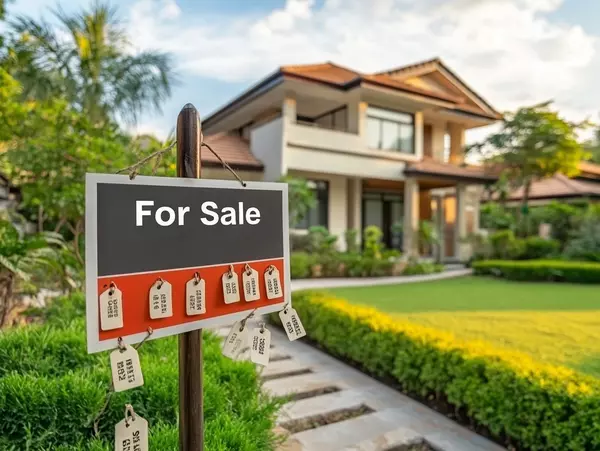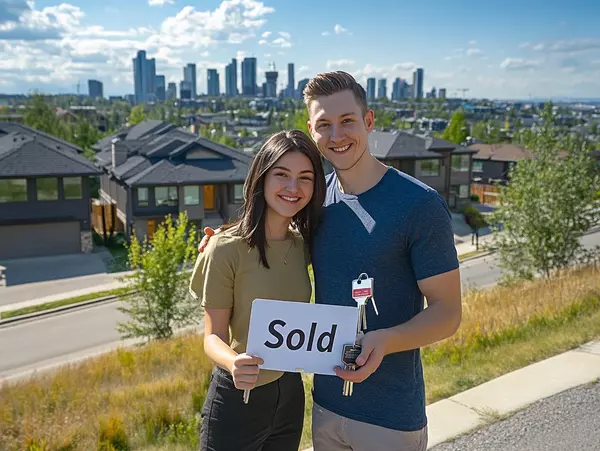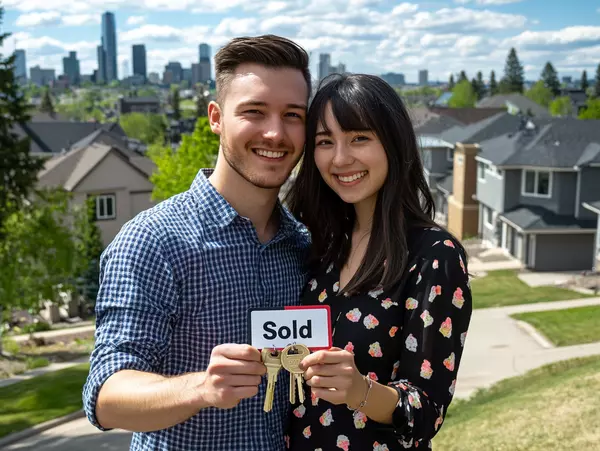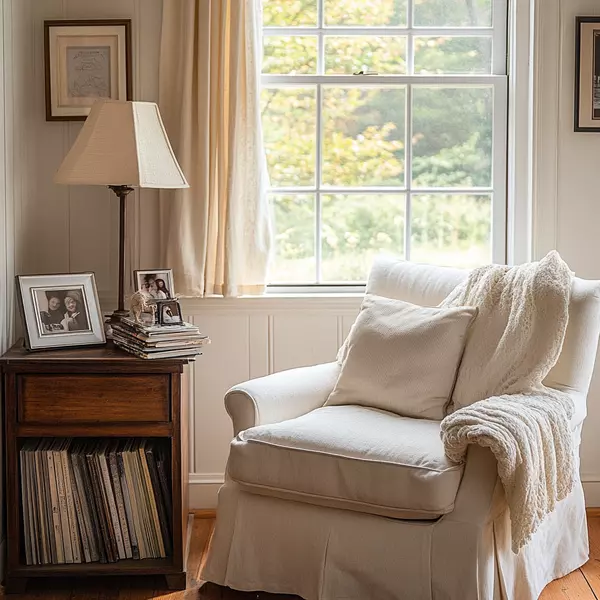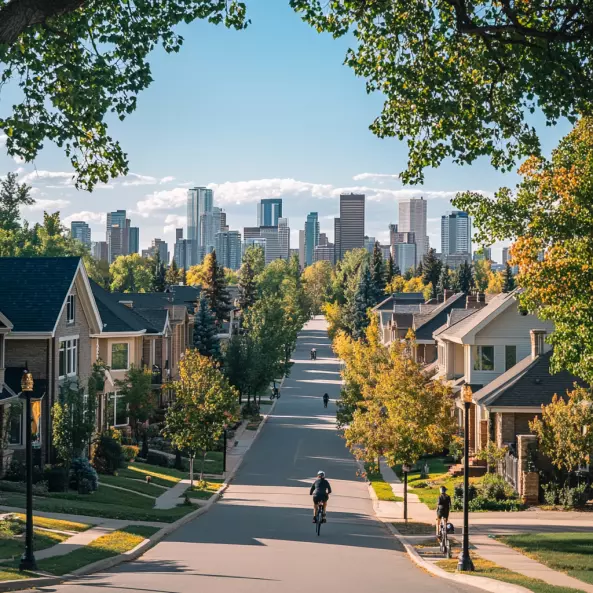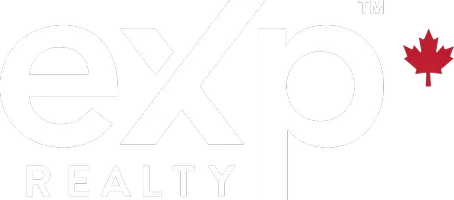
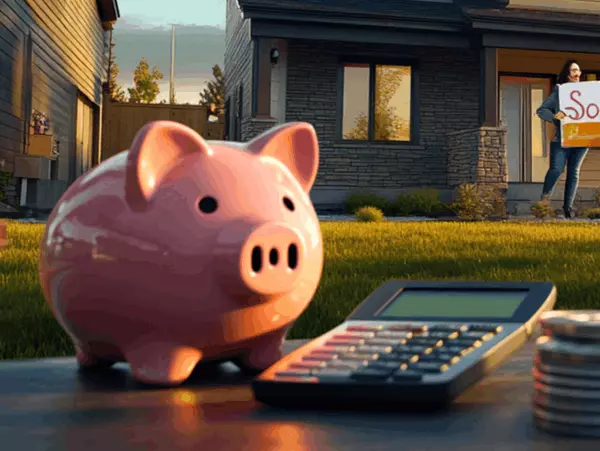
The Ultimate Guide to Down Payments for Homes in Edmonton, Alberta, Canada
Introduction If you’re thinking about buying your first home in Alberta, you’ve probably heard a lot about down payments. It’s one of the biggest financial hurdles for first-time buyers, and figuring out how much you need, how to save, and whether there are assistance programs can feel overwhelming. But don’t worry—I’m here to break it all down in a way that makes sense. In this guide, we’ll cover everything you need to know about down payments in Alberta, from minimum requirements to smart saving strategies and government programs that can help. Let’s get started! Understanding Down Payment Requirements in Alberta The amount you need for a down payment depends on the price of the home: For homes priced at $500,000 or less → Minimum 5% down For homes priced between $500,001 and $999,999 → 5% on the first $500,000 and 10% on the remainder For homes over $1,000,000 → Minimum 20% down If you're a first-time home buyer, you can usually qualify for the minimum 5% down payment, provided you have good credit and meet mortgage requirements. Down Payment Rules for Investment Properties If you’re buying an investment or rental property, you’ll need at least 20% down—no exceptions. Lenders consider investment properties higher risk, which is why they require a bigger upfront investment. Why a Larger Down Payment Can Benefit You If you can save at least 20% for your down payment, you’ll unlock some serious financial perks: ✅ No CMHC Insurance: Avoid Canada Mortgage and Housing Corporation (CMHC) insurance, which costs between 2.8% to 4% of your mortgage loan. That’s thousands in savings! ✅ Lower Monthly Mortgage Payments: A bigger down payment means borrowing less, which lowers your monthly payments. ✅ Less Interest Paid Over Time: Reducing the mortgage amount means you’ll pay less in interest over the life of your loan. ✅ Better Mortgage Rates: Lenders may offer better rates to buyers with a higher down payment, saving you even more over time. How Much Should You Save for a Down Payment? Before setting a goal, assess your financial situation: What is the average home price in the area you’re interested in? How much can you reasonably afford to save each month? Do you have any existing savings you can put toward your down payment? Setting a realistic target will help you stay on track. Best Ways to Save for Your Down Payment Smart Savings Strategies 📌 Track Your Expenses: Use budgeting apps or spreadsheets to see where your money goes and identify areas where you can cut back. 📌 Automate Your Savings: Set up automatic transfers to a high-interest savings account. 📌 Reduce Discretionary Spending: Cutting out unnecessary expenses (like eating out or subscriptions) can free up hundreds per month. Leverage Government Programs Program Benefit Contribution Limits TFSA Tax-free savings for your down payment $7,000 per year RRSP (Home Buyers’ Plan) Withdraw up to $35,000 tax-free Must repay within 15 years FHSA (First Home Savings Account) Tax-free withdrawals & deductible contributions $8,000 per year, $40,000 lifetime limit These accounts help you save faster while minimizing taxes. Down Payment Assistance Programs in Alberta 💰 Alberta PEAK Program – Offers financial assistance for down payments to eligible buyers. 🏡 Municipal Assistance Programs – Cities like Edmonton offer interest-free loans for first-time buyers. 🎁 Gifted Down Payments – Your family can gift you a down payment with no tax implications, as long as it’s a true gift (not a loan). Common Mistakes to Avoid When Saving for a Down Payment 🚫 Ignoring Closing Costs: You’ll need extra savings for legal fees, land transfer taxes, and home inspections. 🚫 Forgetting Homeownership Expenses: Property taxes, insurance, and maintenance costs add up. 🚫 Not Getting Pre-Approved Early: A mortgage pre-approval helps you understand your budget before house-hunting. Final Steps: Moving from Saving to Buying 1️⃣ Get Pre-Approved: Know your budget before you shop.2️⃣ Find the Right Home: Work with a trusted Realtor to find a property that meets your needs.3️⃣ Submit Your Offer: Once your finances are in order, it’s time to make your move! Conclusion Saving for a down payment is one of the biggest steps toward homeownership, but with the right strategies, it’s absolutely achievable. Start early, explore assistance programs, and don’t hesitate to ask for expert advice. Before you know it, you’ll be unlocking the door to your new home! FAQs ❓ What is the minimum down payment for a home in Alberta?The minimum down payment is 5% for homes up to $500,000 and 10% for amounts above that. ❓ Can I use my RRSP for a down payment?Yes! The Home Buyers’ Plan allows you to withdraw up to $35,000 tax-free. ❓ Are there first-time home buyer incentives in Alberta?Yes, Alberta offers down payment assistance programs like PEAK, along with tax-free savings accounts to help you save. ❓ How can I save faster for a down payment?Use government programs, budget carefully, and automate your savings. ❓ What if I don’t have the full down payment?Some municipal assistance programs and gifted down payments can help bridge the gap.
Read More

Unlock Your Dream Home with the RRSP Home Buyers' Plan
Are you tired of paying rent and watching your hard-earned money build someone else’s wealth? It’s time to take control of your financial future. If you’re a first-time homebuyer in Canada, the RRSP Home Buyers' Plan (HBP) could be the key to unlocking your dream home. This program allows you to use your RRSP savings to cover your down payment—without immediate tax consequences. Sounds like a game-changer, right? Let’s dive into how it works and how you can maximize its benefits. Looking for details on all downpayment options? Understanding the Basics of the HBP What is an RRSP? Your Registered Retirement Savings Plan (RRSP) is a tax-advantaged account designed to help Canadians save for retirement. Contributions are tax-deductible, and investments grow tax-free until withdrawal. What is the Home Buyers' Plan? The HBP is a government initiative that allows first-time homebuyers to withdraw up to $60,000 from their RRSP (or $120,000 for couples) to buy or build a home. The best part? No immediate tax hit—just a structured repayment plan. Eligibility Criteria To qualify for the HBP, you must: Be a first-time homebuyer (or haven’t owned a home in the last four years). Be a Canadian resident. Have a written agreement to purchase or build a qualifying home. Intend to live in the home within one year. Have the necessary funds in your RRSP. How the HBP Works Here’s a step-by-step guide: Contribute to your RRSP at least 90 days before withdrawing. Complete Form T1036 to request the withdrawal. Withdraw your funds tax-free. Use the money toward your down payment. Begin repayments two years later, over a 15-year period. Benefits of Using Your RRSP for a Home Purchase Tax Savings: RRSP contributions are tax-deductible, and you won’t pay taxes on withdrawals under the HBP. Bigger Down Payments: Access more funds for your dream home. Lower Borrowing Costs: Avoid or reduce mortgage default insurance by putting down a larger amount. Strategic Tips for Maximizing the HBP Time Your Contributions: Make sure funds have been in your RRSP for at least 90 days to qualify. Boost Savings with Tax Refunds: Contribute your down payment savings to your RRSP, get a tax refund, and use it for home-buying costs. Coordinate as a Couple: Work with your partner to withdraw up to $120,000 combined. Repayment Obligations You must repay the withdrawn amount over 15 years, starting two years after the withdrawal. Miss a payment? The amount will be added to your taxable income for that year. Setting up automatic contributions can help you stay on track. Temporary Repayment Relief Good news: Withdrawals made between January 2022 and December 2025 have an extended grace period of five years before repayments begin. This gives you more breathing room as you settle into homeownership. Long-term Financial Considerations While the HBP is fantastic for homebuyers, remember to balance short-term goals with long-term needs. Using your RRSP for a home may delay retirement savings growth. Common Pitfalls to Avoid Missing Deadlines: Late repayments can lead to tax penalties. Overestimating Affordability: Don’t stretch yourself too thin financially. Neglecting Retirement: Ensure you have a plan to replenish your RRSP. How to Prepare for Using the HBP Consult with financial advisors to understand how the HBP fits into your broader goals. Save strategically, and contribute early. Study market trends to time your purchase effectively. Case Studies Success Story:Emma and Liam, a young Edmonton couple, used the HBP to access $120,000 for their first home. By coordinating withdrawals and leveraging tax refunds, they achieved homeownership with no mortgage default insurance. Comparing the HBP with Other First-Time Buyer Programs The HBP is just one of many incentives. Compare it with programs like the First-Time Home Buyer Incentive (FTHBI) to determine the best fit for your situation. Conclusion The RRSP Home Buyers' Plan is a powerful tool that can bring you closer to owning your dream home in Edmonton. By planning strategically and consulting with professionals, you can make the most of this opportunity. Remember, it’s not just about buying a home—it’s about building your future. FAQs Can I use the HBP if I’ve owned a home before?Yes, if you haven’t owned a home in the last four years. What happens if I miss a repayment?Missed repayments are added to your taxable income for that year. Can I use the HBP for a vacation home?No, the home must be your primary residence. Are there penalties for early repayment?No, you can repay earlier without any penalties. Can I combine the HBP with other programs?Absolutely! Many first-time buyers pair the HBP with the FTHBI or provincial grants.
Read More

Everything You Need to Know About Closing Costs When Buying a Home in Edmonton
Introduction Buying your first home in Edmonton is an exciting milestone, especially for newcomers to Canada. But amidst all the excitement, one thing that often catches first-time homebuyers off guard is closing costs. In this guide, we’ll break down everything you need to know about closing costs in Alberta, helping you be fully prepared when it's time to sign on the dotted line. What Are Closing Costs? Simply put, closing costs are the fees and expenses you need to pay when finalizing the purchase of a home. These can range from legal fees to inspection costs, and they generally add up to between 3% and 5% of your home’s purchase price. Knowing what these costs are upfront will ensure you’re not caught off guard at the last minute. The Down Payment The down payment is the largest upfront cost when buying a home. In Alberta: Homes under $500,000 require a 5% down payment. For homes priced between $500,000 and $999,999, you'll pay 5% of the first $500,000 and 10% of the remaining amount. If the home costs $1 million or more, expect a 20% down payment. Saving for your down payment takes time and planning. Consider using a Tax-Free Savings Account (TFSA) to grow your savings tax-free. Looking for details on all down payment options? Mortgage Default Insurance If your down payment is less than 20%, you’ll need to pay for mortgage default insurance. This cost ranges between 2.8% and 4% of the mortgage amount and can be added to your mortgage. While it’s an added expense, it allows you to buy a home without having to save 20% upfront. Legal Fees In Alberta, you’ll need a lawyer to handle the legal paperwork of buying a home. Legal fees typically range between $500 to $1,500. It’s wise to shop around and find a lawyer who offers a good rate and experience with first-time homebuyers. Property Insurance Before you can finalize your purchase, your lender will require proof of property insurance. This typically costs between $500 and $1,500 annually, but you can often get a better deal by bundling home and auto insurance. Home Inspection Costs Though not mandatory, a home inspection is one of the best investments you can make when buying a home. For a typical home in Edmonton, expect to pay between $300 to $500. A home inspection can save you from future headaches by identifying potential issues before closing the deal. Property Appraisal Your lender might require a property appraisal to verify the home’s value. Appraisals generally cost between $300 to $500, but some lenders include this service as part of their mortgage package, so it’s worth asking. Title Insurance Title insurance protects you from potential legal disputes over property ownership. This is a one-time fee that usually costs around $350, but it offers long-term protection. Land Transfer Fees Unlike other provinces, Alberta doesn’t have a land transfer tax, but you will need to pay a small land transfer fee. This typically ranges between $200 and $1,000, depending on the home’s value. GST on New Homes If you’re buying a newly built home, GST applies at 5%. However, if your home is priced under $450,000, you could qualify for a partial rebate. This can significantly reduce your costs, so be sure to discuss this with your builder or realtor. Adjustment Costs At closing, you may need to reimburse the seller for any prepaid property taxes or utilities. These adjustment costs can range between $300 and $500, so it’s important to budget for them. Budgeting for Closing Costs It’s a good idea to budget conservatively for your closing costs. Plan for costs to be on the higher end of the 3% to 5% range, just to be safe. Also, ask your realtor or lawyer for a detailed estimate early in the process so you’re fully prepared. Conclusion Being prepared for closing costs is a critical part of buying a home in Edmonton. By understanding what to expect and planning ahead, you’ll avoid surprises and make your home-buying experience much smoother. As always, consult with your realtor, lawyer, and mortgage broker to get personalized advice based on your specific situation. FAQs 1. Can I roll closing costs into my mortgage?No, in Canada, closing costs must be paid upfront and cannot be added to your mortgage. 2. Are home inspections mandatory in Alberta?No, but they are highly recommended to identify any potential issues with the home. 3. Do first-time buyers in Alberta get any discounts on closing costs?There are no specific discounts for first-time buyers, but Alberta offers various programs to help offset the costs. 4. What happens if I don’t have enough saved for closing costs?If you don’t have enough saved for closing costs, your mortgage might not get approved, so it’s essential to budget carefully. 5. Can I negotiate closing costs with the seller?In some cases, yes. You may be able to negotiate for the seller to cover certain closing costs, but this depends on the market conditions and the agreement you reach.
Read More

Understanding the Home Buying Process in Edmonton: A Beginner’s Guide
Buying your first home in Edmonton? Exciting, right? But also a bit daunting. Don’t worry, though! We’re here to walk you through each step of the home-buying process. By the end of this guide, you’ll be equipped with the knowledge to make informed decisions and feel confident about your journey into homeownership. Assess Your Readiness and Finances Checking Your Credit Score Your credit score is like your financial report card. It plays a major role in whether you’ll be approved for a mortgage and the kind of interest rates you’ll get. If your score is below 650, don’t fret—there are ways to improve it before you start house hunting. Evaluating Your Debt-to-Income Ratio Lenders typically prefer a debt-to-income ratio of 43% or lower. This means your monthly debts, including the potential mortgage payment, should not exceed 43% of your monthly income. Determining Your Budget A good rule of thumb is to keep your housing expenses within 30% of your gross monthly income. This helps ensure that you’re not overextending yourself financially. Saving for a Down Payment Looking for details on all downpayment options? In Canada, the minimum down payment is 5% of the home’s purchase price. But if you can save more, you’ll reduce your mortgage insurance premiums and overall interest payments—so it’s worth considering. Did you know that you can use your RRSP funds? Here is a full explaination. Get Pre-Approved for a Mortgage Shopping Around for Lenders Different lenders offer different rates and terms, so it pays to shop around. You’ll want to compare at least three options before making a decision. Gathering Necessary Documents You’ll need proof of income, employment verification, and details about your assets and debts. Having these documents ready will make the pre-approval process smoother. Understanding Your Borrowing Capacity Pre-approval gives you a clear idea of how much you can afford to spend. It also shows sellers that you’re a serious buyer, which can be a big advantage in a competitive market. Choose the Right Property Determining Your Needs and Wants Start by making a list of what you absolutely need in a home (like the number of bedrooms) and what would be nice to have (like a big backyard). This will help narrow your search. Researching Edmonton Neighborhoods Think about what’s important to you—proximity to work, schools, amenities, or future development plans. Each neighborhood in Edmonton has its own unique vibe, so take the time to find one that fits your lifestyle. Exploring Different Property Types Edmonton offers a variety of housing options, from single-family homes to duplexes, townhouses, and condos. Each comes with its own set of pros and cons, so consider what type of property best suits your needs. Utilizing Online Resources Websites like Realtor.ca provide up-to-date listings of available properties in Edmonton. These resources are great for getting a sense of what’s on the market and what fits within your budget. Work with a Real Estate Agent Choosing an Experienced Agent An experienced agent familiar with Edmonton’s market can make all the difference. They’ll guide you through the process, help you avoid common pitfalls, and negotiate on your behalf. Communicating Your Goals and Budget Be clear about what you’re looking for and what your budget is. The more your agent knows about your needs, the better they can serve you. Leveraging Their Expertise A good agent knows the ins and outs of the market and can provide valuable insights on property values, neighborhood trends, and negotiation strategies. Tour Potential Homes Creating a Checklist When touring homes, use a checklist to note important features like the condition of the home, the layout, and any potential renovation needs. This will help you compare properties more effectively. Considering the Neighborhood Don’t just focus on the house—pay attention to the neighborhood as well. Check out the local amenities, transportation options, and overall atmosphere. Asking the Right Questions Ask about the age of the home, any recent renovations, and any potential issues like a leaky roof or outdated plumbing. This information can help you avoid costly surprises later on. Make an Offer and Negotiate Determining a Fair Price Your real estate agent can help you analyze comparable sales in the area to come up with a competitive offer. You don’t want to overpay, but you also don’t want to lose out on your dream home by underbidding. Including Conditions in Your Offer Common conditions include financing approval, a satisfactory home inspection, and the review of condo documents (if applicable). These conditions protect you if something goes wrong. Preparing for Counteroffers It’s common for sellers to counter your initial offer. Be prepared to negotiate and work with your agent to ensure you get the best possible deal. Conduct Due Diligence Scheduling a Home Inspection A home inspection is crucial. It can uncover potential issues that could affect your decision to buy or your negotiating position. Reviewing Condo Documents (if applicable) If you’re buying a condo, reviewing the condo corporation’s financial statements, bylaws, and reserve fund study is essential. These documents give you insight into the health of the condo community and any potential future costs. Obtaining a Property Appraisal An appraisal ensures that the price you’re paying aligns with the home’s actual value. This is also a requirement for most mortgages. Close the Deal Finalizing Your Mortgage Once you’ve settled on a home, you’ll need to finalize your mortgage. This might involve providing additional documentation to your lender. Arranging for Home Insurance Home insurance is usually required by mortgage lenders. It protects your investment in case of damage or loss. Hiring a Real Estate Lawyer A real estate lawyer will review all the legal documents and handle the transfer of property ownership. They’re essential for ensuring everything is in order. Conducting a Final Walk-Through Before closing, do a final walk-through to ensure the property’s condition hasn’t changed since your last visit. This is your last chance to spot any issues. Signing Closing Documents Finally, you’ll review and sign all the necessary paperwork to complete the purchase. Once this is done, you’ll get the keys to your new home! Conclusion Buying your first home in Edmonton is an exciting journey, and with the right guidance, it doesn’t have to be overwhelming. By following these steps and working with experienced professionals, you’ll be well on your way to becoming a proud homeowner. FAQs What is the minimum credit score needed for a mortgage in Edmonton? Typically, lenders prefer a credit score of 650 or higher. However, some lenders may work with lower scores depending on other financial factors. How long does it take to close on a home in Edmonton? The closing process usually takes between 30 to 60 days, depending on various factors, including the lender's processing time and any conditions in the purchase agreement. What should I look for during a home inspection? Key areas include the roof, foundation, plumbing, electrical systems, and overall structural integrity. An inspector can identify issues that may require attention. Can I back out of a deal if the home inspection reveals issues? Yes, if your offer included a home inspection condition, you can negotiate repairs or withdraw your offer based on the findings.
Read More
Categories
- All Blogs (22)
- downsizing (2)
- Eco-friendly Homes (1)
- Edmonton Bylaws (2)
- Events & Community News (4)
- First Time Home Buyer (4)
- Gardening & Landscaping (1)
- Home Buying Tips (14)
- Home Insurance (2)
- Home Selling Tips (6)
- How to (9)
- increase home value (8)
- Interior Design (1)
- Local Market Trends (8)
- market Influences (11)
- Market Update (9)
- Migration (2)
- Mortgage Info (2)
- Moving & Relocation (8)
- Neighborhood Profiles (4)
- Real Estate FAQs (15)
- Real Estate Investment (1)
- Real Estate Laws & Regulations (2)
- Technology in Real Estate (2)
Recent Posts



